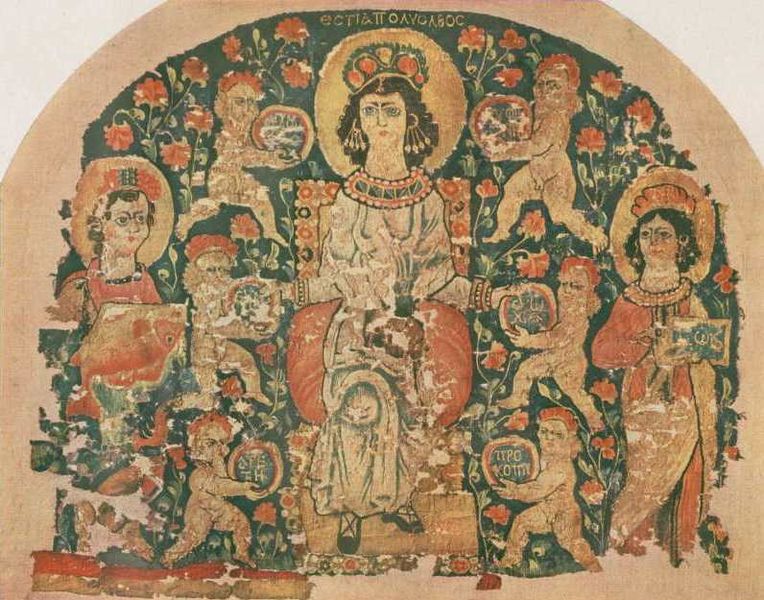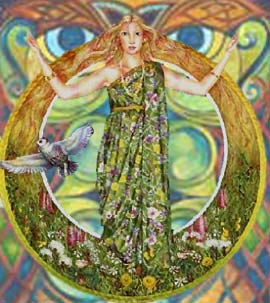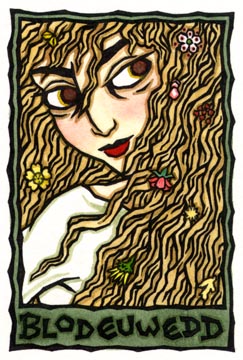
So I'm sitting here on Hecate's screen porch, having just fed Miss Thing, enjoying my second cup of coffee, listening to the acorns bounce off the roof, and thinking that I really need to Goddess blog Hestia, since I seem to have offended her mightily. Which is why I'm sitting here on Hecate's screen porch drinking my coffee rather than sitting at my kitchen table with the WaPo.
This past week, in the middle of the night, a gasket in my second floor bathroom decided that it didn't want to be a gasket any more, resulting in a flood of truly epic proportions chez E. Hecate generously offered to let me stay with her, and, after I realized, on Thursday morning, that my walk-in closet floor had also gotten wet and I was going to have to move all my clothes to the last remaining available horizontal storage surface, MY BED, leaving me no place to sleep, I gladly accepted.
Anyway, Hestia, this one's for you.
Hestia, according to Wikipedia (which Science magazine tested and found to be as reliable as the venerable Encyclopedia Britanica), "is the goddess of the hearth, of the right ordering of domesticity and the family, who received the first offering at every sacrifice in the household." It continues to note, "At a very deep level her name means 'home and hearth': the household and its inhabitants." Hestia is the original home fire that was kept burning. Homer called her the chief among all the Goddesses. To quote Homer:
Hestia, you who tend the holy house of the lord Apollo, the Far-shooter at goodly Pytho, with soft oil dripping ever from your locks, come now into this house, come, having one mind with Zeus the all-wise: draw near, and withal bestow grace upon my song.
All hail Hestia! And, Lady, please smile on me once again.


























